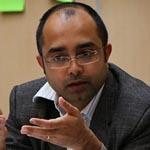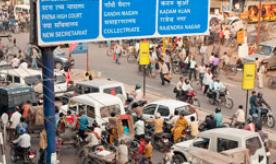Indrajit Roy's dissertation, titled ‘Capable Subjects: Power and Politics in Eastern India’, elaborates a politicized reading of Amartya Sen’s Capability Approach. He draws on quantitative and qualitative analysis of ethnographic data from rural eastern India to substantiate his argument. He has been invited to lecture on themes pertaining to development, politics and democracy in India at Lund, Edinburgh, Glasgow, Stanford and Berkeley. Indrajit has published with World Development, Contemporary South Asia, Economic and Political Weekly and Oxford Development Studies. He has a forthcoming paper in Journal of Peasant Studies as well as a few edited volumes. During the Fellowship period, he is developing his doctoral dissertation into a monograph tentatively titled ‘Restive Subjects: The Politics of the Poor in India’. His intellectual interest lies in the ‘political sociology of the transition’ as a part of which which he wants to explore the political imaginations, identities and practices attending to processes of social change. He is involved in several collaborative and individual projects to inform this research focus. He is a member of the ESRC/ERC-funded Democratic cultures of South Asia research consortium. Other collaborative work includes research on ‘Political subjectivity in neoliberal India’, ‘Beyond Citizenship: Arcadian Spaces of Emancipation’ and ‘Rethinking Resistance: Subalternity and the State in Contemporary India’. He is involved with policy-oriented research as a member of the DFID-funded Effective States Inclusive Development Research Consortium. He has recently won an award from the International Growth Center on the ‘Changing Face of Internal Circular Migration in Bihar, India’, which he intends to develop into a large-scale comparative project on political remittances conveyed by internal circular migrants in India. In the long-term, he intends to research social and political transformations in a comparative perspective, building on the Politics of IBSA (India, Brazil and South Africa) Seminar Series that he co-convened in 2011. Indrajit completed his first degree in History from Delhi University, and worked for several years as a development practitioner.





